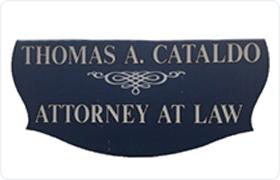 Short Hills DUI-DWI Lawyers, New Jersey
Short Hills DUI-DWI Lawyers, New Jersey
Sponsored Law Firm
-
 x
x

Click For More Info:
-
Thomas A. Cataldo, Attorney at Law
52 South Street Morristown, NJ 07960» view mapCriminal Defense Law Tip The Scales In Your Favor!
Thomas A. Cataldo, Attorney at Law has the legal experience you need at affordable rates that can't be beat.
800-834-4291
Sponsored Lawyers
1-5 of 5 matches
Personal Injury, DUI-DWI, Employment, Real Estate, Traffic
At Franzblau Dratch, P.C. we provide our clients with legal services in a comprehensive, yet cost effective manner, while at the same time reflecting and pursuing only the highest legal and ethical standards. While large enough to offer our clients a wealth of diverse experience and skill, Franzblau Dratch's goal is to provide close, hands on, attention to every client and matter entrusted to our care.
(more)


 Thomas Cataldo Morristown, NJ
Thomas Cataldo Morristown, NJ Practice AreasExpertise
Practice AreasExpertise

